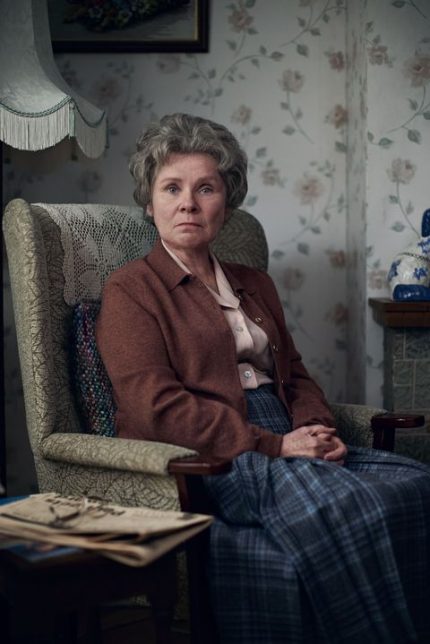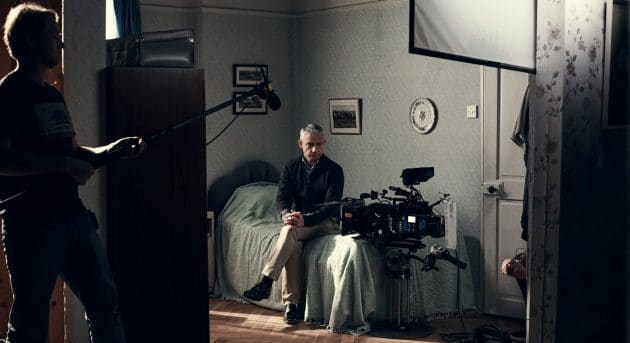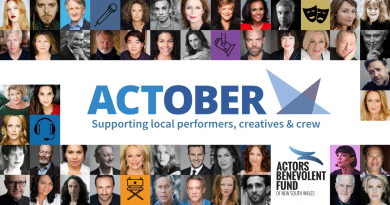TALKING HEADS: The perfect pandemic production
In the midst of the 2020 lockdown, BBC iPlayer aired a series called Unprecedented, a collection of short performances filmed as a response to our radically shifting times. The subject of one of these performances is a homeless man communicating with his dog via Skype. I did say radical. The point is, the dramatic monologue as a form has found a new context. In the current state of affairs, the form is, of course, practical – but it also reflects the experience of the human race.

Bennett’s miniature gems of observation and poignancy, each crystallised into half an hour, first encroached on public consciousness in the late 1980s, soon to be adapted for radio and stage – and even finding their way onto the English Literature syllabus. It could be argued – and some have (Rachel Cooke of The New Statesmen is one example) – that these monologues are now dated and anachronistic. I disagree, and seemingly the BBC does too: back in June, ten of Bennett’s Talking Heads monologues (including two new ones) were filmed and aired, showcasing a stellar cast of heavyweight acting talent, including Kristin Scott Thomas and Imelda Staunton. But what exactly makes Talking Heads the ideal pandemic production, whether on TV or stage?
Practical Magic
There can be no doubt that Covid-19 dictates that practical considerations inform every form of entertainment. What could be more suited to these considerations than a monologue? With only one actor and one cameraman in the performance space at any one time, the episodes previously mentioned were produced without complication. All preparation and organisation had been undertaken via Zoom.

But that’s not all: modern audiences have adapted to being fed an unvaried diet of performances in which actors play themselves (such as David Tennant and Michael Sheen’s Staged) and this has become a tedium borne of practicality. Many similar projects were spawned during the lockdown period. Perhaps we should echo Laurence Olivier’s famous line: ‘Why don’t you just try acting?’ – Talking Heads is the perfect, practical vehicle for actors who actually want to act, pandemic or no.
The Age of Introspection
A ‘talking head’ is sometimes used as a derogatory term for a dullard espousing mundane matters to anyone who will listen. But that’s the point. Escapism Talking Heads is not. It is the gradual revelation of private and sometimes disturbing thoughts, and any humour is of the chilly variety. Who has not, this year, had to grapple with their own thoughts? Who has not had to mentally wrangle with the basics of everyday life? Who has not suffered from loneliness and felt the urge to communicate their thoughts, if only to a void or an electronic device? Not many. This is the beauty of Talking Heads: a solitary performance, an individual allowing us to perceive life through their particular lens – offering perspectives and dilemmas which may well strike a chord with swathes of audience members. Of course, the speaker is always unreliable – but we are all unreliable narrators when conveying our subjective experiences. With Talking Heads, the exchange between performer and audience is surprisingly intimate, despite the physical detachment. This may be cold comfort, but at least it is comfort of some sort.
Not Convinced?

The best evidence in favour of the timeliness of Talking Heads is in the content of the monologues themselves. Each monologue is masterfully structured, each detail drip-fed throughout the confessional, leaving the audience to cast their own mental judgement. For me, this resonates: for months, we, as in the general public, have also been drip-fed information as the pandemic has evolved, leading us to constantly re-adjust our thoughts and opinions. We find coping mechanisms. Take the monologue ‘The Outside Dog’ as an exemplification of survival tactics: Marjory lives with her brutal husband Stuart and his dog, Tina (which Marjory prefers to be kept outside). Her home is not the haven of safety that is usually synonymous with being within your own four walls. She is deeply lonely. The monologue opens with Marjory frantically washing her hands (how can that fail to chime with a modern audience?) and we incrementally learn that her husband is the serial killer being sought by the police; her constant battle with detergent (OCD?) is her way of coping and perhaps ‘cleansing’ herself of this knowledge she carries within her. In common with goodness knows how many women during lockdown, Marjory is trapped within a confined space, existing alongside a monster and his sidekick (the dog). Don’t we all also fear a killer on the loose, manifested in the form of a deadly and elusive virus?
The settings of Talking Heads also scream modern-day relevance: the familiarity of a kitchen, the convenient staircase for the purpose of pensive rumination, the varying degrees of darkness and of course, the highly symbolic windows. During the pandemic, windows have formed a barrier between ourselves and the freedom we desire, while also shielding us from the threat that lurks without. Yet it is also a window that allows audiences to glimpse a life (and a psyche) other than their own.
Back on Stage
On September 7th this year, Bridge Theatre in London opened its doors to punters keen to experience the double-bill performances of Talking Heads, which will run until 31st October. In line with government guidelines, audiences are capped at 250. But patrons are turning up; theatre-goers are voting with their feet. While many seek relief from these dark times and prefer their theatre to be uplifting and joyous, it seems that just as many are keen to experience drama that ‘hold[s]…the mirror up to nature’ (Hamlet). Who needs cheerer-uppers like Legally Blonde or Hairspray when in Talking Heads we are presented with the absolutely perfect pandemic production?




